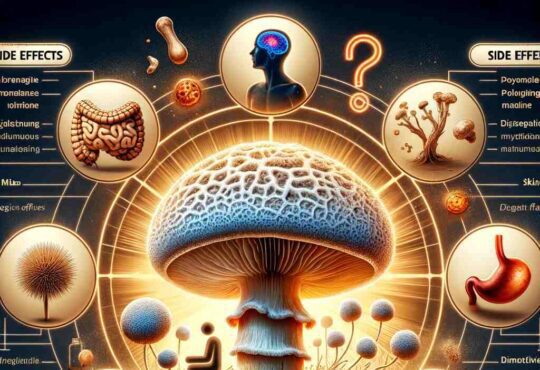Unveiling the Silent Hazards of a Herniated Disc in the Neck: From Chronic Pain to Irreversible Harm
115views
Introduction
- A herniated disc in the neck is a common condition that affects the neck, causing chronic pain and potential long-term disabilities.
- Understanding the hidden dangers of a herniated disc in the neck is crucial for early detection and appropriate treatment.
Anatomy of the Neck and Spinal Discs


- The neck consists of vertebrae and spinal discs that play a vital role in supporting and facilitating movement.
- Intervertebral discs, located between the vertebrae, provide cushioning and shock absorption.
- Herniated disc in the neck occur when the outer layer of the disc ruptures, leading to compression of nearby nerves.
Identifying a Herniated Disc in the Neck
- Common symptoms of a herniated disc in the neck include neck pain, radiating arm pain, numbness, and tingling.
- Distinguishing between regular neck pain and a herniated disc can be challenging, requiring further diagnostic tests and procedures.
- Accurate diagnosis is essential to ensure appropriate and targeted treatment.
The Chronic Pain Predicament
- A herniated disc often causes chronic pain, disrupting daily activities and diminishing quality of life.
- Chronic pain associated with a herniated disc in the neck can lead to physical and psychological consequences.
- Managing persistent pain requires a comprehensive approach, encompassing both physical and emotional well-being.
Nerve Damage and Potential Disabilities
- Herniated discs in the neck can result in nerve compression, leading to significant discomfort and potential complications.
- Nerve damage caused by a herniated disc can result in long-term disabilities, such as loss of sensation or motor function.
- Recognizing the risks associated with nerve damage emphasizes the importance of early intervention and appropriate treatment.
The Role of Lifestyle Factors
- Poor posture is a significant contributor to neck problems, including herniated disc in the neck.
- A sedentary lifestyle can negatively impact neck health, emphasizing the need for regular movement and exercise.
- Occupational hazards and improper ergonomics can increase the risk of developing a herniated disc in the neck.
Treatment Options for Herniated Discs
- Non-surgical approaches, such as physical therapy and pain management techniques, can effectively manage neck pain caused by a herniated disc.
- Physical therapy helps improve mobility, strength, and flexibility, promoting overall neck health.
- Pain management techniques and medications offer relief while targeting the underlying cause of the herniated disc.
- Strengthening neck muscles through targeted exercises can help prevent and reduce the risk of herniated discs.
- Maintaining good posture and practicing neck hygiene habits, such as avoiding excessive smartphone use, can contribute to long-term neck health.
- Avoiding activities that strain the neck and spine, such as heavy lifting or prolonged periods of sitting, is essential for prevention.
- Genetic predisposition and familial history play a role in determining the susceptibility to herniated discs.
- Age-related changes in the spinal discs, including degeneration and decreased flexibility, increase the risk of herniations.
- Other risk factors, such as obesity and smoking, can be mitigated through lifestyle modifications and healthy choices.
Surgical Interventions
- Surgical treatment for a herniated disc is indicated in certain cases where conservative measures fail to provide relief.
- Common surgical procedures for neck herniations include discectomy, laminectomy, and spinal fusion.
- It is crucial to be aware of the potential risks and complications associated with surgery and to weigh them against the potential benefits.
Post-Surgery Recovery and Rehabilitation
- Expected outcomes and improvement possibilities vary depending on individual circumstances.
- Rehabilitation after surgery involves a structured process that may include physical therapy and lifestyle modifications.
- Preventing future herniated disc problems involves adopting habits that promote spinal health and regular monitoring.


Lifestyle Modifications for Prevention
- Strengthening neck muscles through targeted exercises can help prevent and reduce the risk of herniated discs.
- Maintaining good posture and practicing neck hygiene habits, such as avoiding excessive smartphone use, can contribute to long-term neck health.
- Avoiding activities that strain the neck and spine, such as heavy lifting or prolonged periods of sitting, is essential for prevention.
Coping Strategies and Psychological Support
- Living with a herniated disc can have a significant psychological impact, including frustration, anxiety, and depression.
- Implementing coping mechanisms, such as mindfulness techniques and relaxation strategies, can help manage chronic pain.
- Seeking emotional support from loved ones and considering therapy can provide valuable support during the journey to recovery.
Understanding Risk Factors and Prevention
- Genetic predisposition and familial history play a role in determining the susceptibility to herniated discs.
- Age-related changes in the spinal discs, including degeneration and decreased flexibility, increase the risk of herniations.
- Other risk factors, such as obesity and smoking, can be mitigated through lifestyle modifications and healthy choices.
Alternative Therapies and Complementary Medicine
- Acupuncture has shown potential benefits in managing pain associated with a herniated disc.
- Chiropractic care, when administered by a qualified professional, can provide relief and improve spinal alignment.
- Herbal supplements and natural remedies may offer symptomatic relief, although their efficacy varies, and caution should be exercised.
Exploring Experimental Treatments and Clinical Trials
- Constant advancements in medical research bring about emerging treatments for herniated discs.
- Regenerative medicine holds promise in repairing damaged discs through innovative techniques.
- Clinical trials offer opportunities for individuals to participate in cutting-edge research and contribute to future treatment options.
Seeking Professional Help: Choosing the Right Specialist
- Selecting an experienced healthcare professional is crucial when seeking treatment for a herniated disc.
- Orthopedic specialists, neurosurgeons, and pain management experts each play a specific role in the comprehensive care of neck herniations.
- Considerations, such as the specialist’s expertise, reputation, and personalized treatment approach, should guide the decision-making process.
Frequently Asked Questions (FAQs)
- The most common causes of a herniated disc in the neck include trauma, age-related degeneration, and improper lifting techniques.
- While some herniated discs can heal on their own, others may require medical intervention to alleviate symptoms and prevent complications.
- Non-surgical treatment options, such as physical therapy, medication, and interventional procedures, can provide relief for neck pain caused by a herniated disc.
- The recovery process after neck surgery varies based on the specific procedure and individual factors, and it may take several weeks to months.
- Exercises and lifestyle changes that promote neck strength and good posture can contribute to reducing the risk of a herniated disc in the neck.
Summary
Understanding the silent hazards of a herniated disc in the neck is essential for early detection and appropriate treatment.
- Early intervention and comprehensive care can help prevent irreversible harm and improve overall neck health.
- Proactively caring for our necks through lifestyle modifications and seeking timely professional help are paramount to protecting this delicate area of our bodies.
add a comment






